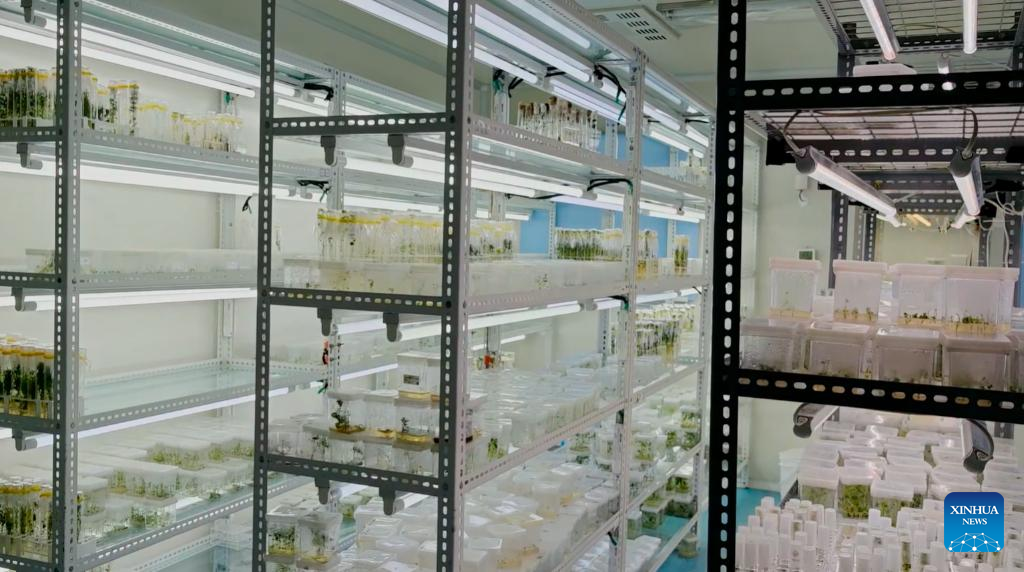
This screenshot captured from a video shot on June 20, 2024 shows potato seedlings in a lab at a potato biology research institute in Southwest University in southwest China's Chongqing Municipality. (Xinhua/Li Aibin)
CHONGQING, July 8 (Xinhua) -- Walking into a potato biology research institute in southwest China's Chongqing Municipality, visitors can see rows of vibrant green potato seedlings flourishing under meticulous care.
Vadim Khassanov, a professor from S. Seifullin Kazakh Agrotechnical Research University, is a daily presence in this lab at Southwest University. While making keen observations, he documents the progress of the seedlings. He collaborates closely with the university's faculty and students, delving into the intricacies of potato variety breeding and the quest for higher yields.
In November 2021, a significant milestone was reached with the establishment of the Belt and Road international innovation institute for the potato industry. This project was spearheaded by Southwest University in conjunction with the CIP (International Potato Center) - China Center for Asia Pacific and over 10 Belt and Road partner countries.
"China is the world's leading potato producer and for Kazakhstan, potatoes are a vital food staple," Khassanov said, highlighting Southwest University's outstanding research teams, solid research infrastructure, and state-of-the-art facilities dedicated to potato research.
"Our mutual interests are deeply rooted in the innovation of potato germplasm, breeding, seed quality assessment and disease studies, where we see immense potential for collaborative endeavors," Khassanov added.
Lyu Dianqiu, dean of the College of Agronomy and Biotechnology at Southwest University, shared the fruits of their labor: "Our joint efforts with enterprises from China and Kazakhstan in promoting and showcasing innovative varieties have yielded remarkable results. The varieties we've cultivated have seen a yield increase of over 30 percent compared to local strains."
Currently, six new potato varieties, including the notable "Red Rose," and a rapid virus detection kit for potatoes have been developed under joint efforts. These advancements offer a "Chinese solution" to the development of the potato industry in Belt and Road partner countries like Kazakhstan.
Khassanov expressed his optimism, saying, "Our achievements in science and technology will not only be celebrated but will also be translated into practical recommendations for farmers, enriching their potato cultivation options and introducing them to innovative agricultural techniques."
So far, their cooperation in agricultural science and technology has increased Kazakhstan's agricultural output. Meanwhile, the seamless operation of logistics channels, such as the China-Europe freight trains, has further propelled the export of Kazakhstan's agricultural products.
In recent years, an increasing array of Kazakhstan's agricultural products, including oilseeds, grains and meats, have been making their way into China via China-Europe freight trains. ■



